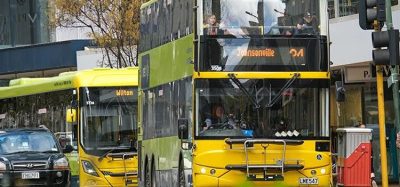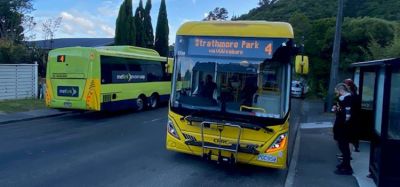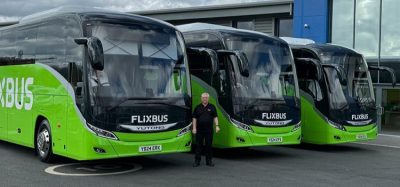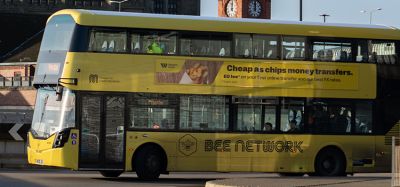New bio-methane gas bus filling station opens in Bristol
- Like
- Digg
- Del
- Tumblr
- VKontakte
- Buffer
- Love This
- Odnoklassniki
- Meneame
- Blogger
- Amazon
- Yahoo Mail
- Gmail
- AOL
- Newsvine
- HackerNews
- Evernote
- MySpace
- Mail.ru
- Viadeo
- Line
- Comments
- Yummly
- SMS
- Viber
- Telegram
- Subscribe
- Skype
- Facebook Messenger
- Kakao
- LiveJournal
- Yammer
- Edgar
- Fintel
- Mix
- Instapaper
- Copy Link
Posted: 11 February 2020 | Sam Mehmet (Intelligent Transport)
The new gas filling station, designed and built by Gas Bus Alliance, represents an investment of more than £2 million and took around nine months to build.
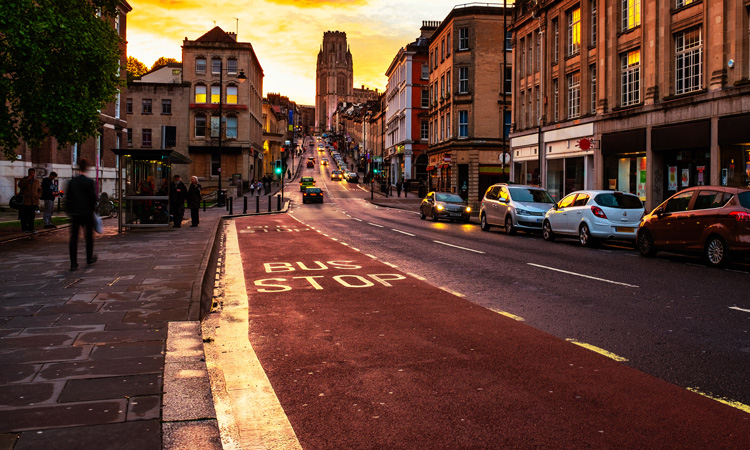

As part of its commitment to improving air quality and tackling the climate emergency, First West of England has launched its 77 new bio-methane powered gas bus scheme, including a major new gas filling station at Lawrence Hill depot.
From the start of January 2020, the first 10 of the new buses came into operation on the metrobus m3 service, drawing fuel from the existing gas station opened in 2019, but they will soon begin using the new gas fuelling station at Lawrence Hill depot. The next 27 buses will also be soon rolled out in East Bristol, replacing all city buses currently running along two major routes.
The bus station can provide 100 per cent compressed bio-methane to fuel up to 100 gas buses. The bio-methane is taken direct from the mains, which is said to provide another green benefit as there will be no fuel delivery from road tankers.
This second and larger-capacity facility is a crucial next stage in our bio-methane journey: it means we can roll out cleaner, greener vehicles and contribute substantially to help clean up the local air.
Operating in tandem with the existing bio-methane station in Parson Street, Bedminster, which opened last summer, the two sites mean a total of 99 buses will be running on bio-methane gas in the area by April 2020. Each fuelling will keep a bus on the road for around 250 miles.
The bio-methane gas that fuels the buses is provided by the Gas Bus Alliance (GBA), and comes from waste food and is supplied from anaerobic digesters across the UK. Bio-methane gas offers more than 85 per cent reduction in greenhouse gases compared to older diesel buses and helps to improve air quality.
The total scheme has involved an investment of £28 million over three years and was part-funded by a government grant of £4.79 million under the Low Emission Bus Scheme (LEBS) through South Gloucestershire and Bristol City Councils.
James Freeman, First West of England Managing Director, said: “This second and larger-capacity facility is a crucial next stage in our bio-methane journey: it means we can roll out cleaner, greener vehicles and contribute substantially to help clean up the local air. As we are now able to fuel more bio-methane powered gas vehicles than we currently have in our fleets, we are looking to open the facility up to other, third party commercial operations in the future. We’re really putting the West of England at the forefront of clean commercial fleets.”
West of England Mayor, Tim Bowles, said: “We’re already seeing more than 100,000 passenger journeys being made by metrobus every week, with the latest passenger survey showing that it has taken 19,000 car journeys off the road. I want to build on that success with more services and better connections as part of my wider objective of getting more people to switch to using public transport across the West of England.”
Related topics
Alternative Power, Fleet Management & Maintenance, Public Transport, Sustainable Urban Transport
Related modes
Bus & Coach
Related cities
Bristol
Related organisations
FirstGroup, Gas Bus Alliance
Related people
James Freeman, Tim Bowles




